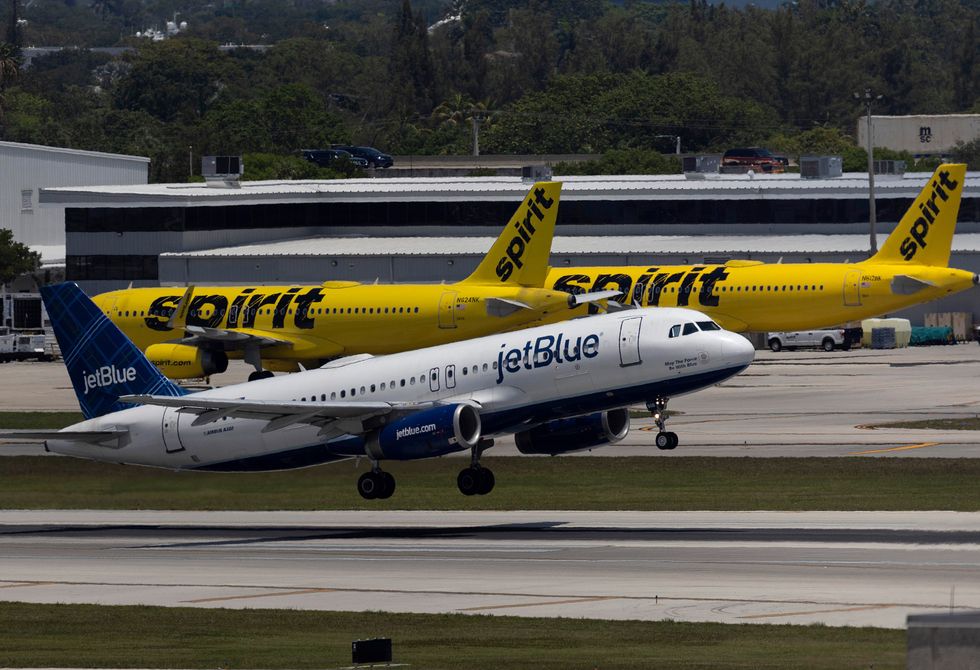
Consumer and labor advocates on Tuesday welcomed a U.S. Department of Justice antitrust lawsuit seeking to block JetBlue’s proposed $3.8 billion acquisition of Spirit Airlines, its biggest competitor, a deal that critics say would harm passengers and workers.
The Department of Justice (DOJ), along with the attorneys general of Massachusetts, New York, and Washington, D.C., allege in the civil antitrust suit that “by eliminating that competition and further consolidating the United States airlines industry, the proposed transaction will increase fares and reduce choice on routes across the country, raising costs for the flying public and harming cost-conscious fliers most acutely.”
While the two airlines argue that their merger would increase competition, U.S. Attorney General Merrick Garland said in a statement that the deal “would result in higher fares and fewer choices for tens of millions of travelers, with the greatest impact felt by those who rely on what are known as ultra-low-cost carriers in order to fly.”
“Americans want more choices and lower prices for airline tickets, not another giant merger.”
Consumer advocacy groups agreed with Garland’s assessment.
“In blocking this blatantly anti-competitive deal, the Department of Justice is standing up for passengers, workers, and communities across the country,” William J. McGee, senior fellow for aviation and travel at the American Economic Liberties Project, said in a statement. “Don’t believe JetBlue’s corporate spin: Allowing JetBlue to gobble up a low-cost competitor and accelerate concentration in the aviation industry will immediately drive up fares nationwide.”
Transport Workers Union of America (TWU)—which represents JetBlue flight attendants—also opposes the deal.
“We have yet to see a credible argument that a consolidated JetBlue-Spirit will enhance competition in the domestic airline industry,” TWU international president John Samuelsen wrote in a letter to Garland and U.S. Transportation Secretary Pete Buttigieg last month.
“Workers and passengers will be harmed, just as they have been in many past airline consolidations, as the new airline follows the business practices, pricing strategies, and labor cost-cutting practices previous combined carriers have undergone,” Samuelsen added.
Some opponents of the airline megadeal noted that the U.S. Department of Transportation (DOT) has the power to do more to block anti-competitive mergers and acquisitions.
As the Economic Liberties Project noted: “The DOT already has broad, existing authority under the Clayton Act to block airline mergers. Similarly, under Title 49 of the U.S. Code, DOT has broad authority to investigate and prosecute anti-competitive airline mergers, and to deny route transfers that contravene the public interest or affect domestic competition.”
The group also highlighted President Joe Biden’s call for Buttigieg to deliver financial relief to air travelers and align the DOT with the White House’s plan to promote a more competitive economy.
“Secretary Buttigieg and the Department of Transportation have broad authority to block harmful mergers and promote competition throughout the airline industry,” McGee said. “We’re also pleased to see reporting that DOT plans to use their power, embracing President Biden’s competition agenda, to stop the JetBlue-Spirit deal.”




